Related Research Articles

William of Wykeham was Bishop of Winchester and Chancellor of England. He founded New College, Oxford, and New College School in 1379, and founded Winchester College in 1382. He was also the clerk of works when much of Windsor Castle was built.

Benjamin Hoadly was an English clergyman, who was successively Bishop of Bangor, of Hereford, of Salisbury, and finally of Winchester. He is best known as the initiator of the Bangorian Controversy.
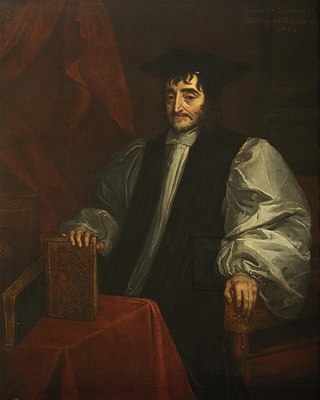
George Morley, was a senior member of the Church of England from London, who served as Bishop of Worcester from 1660 to 1662, and of Winchester from 1662 to 1684.
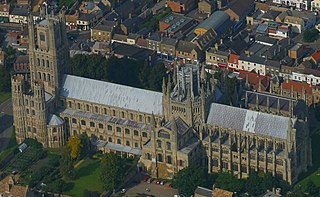
Hervey le Breton was a Breton cleric who became Bishop of Bangor in Wales and later Bishop of Ely in England. Appointed to Bangor by King William II of England, when the Normans were advancing into Wales, Hervey was unable to remain in his diocese when the Welsh began to drive the Normans back from their recent conquests. Hervey's behaviour towards the Welsh seems to have contributed to his expulsion from his see. Although the new king, Henry I wished to translate Hervey to the see of Lisieux in Normandy, it was unsuccessful.
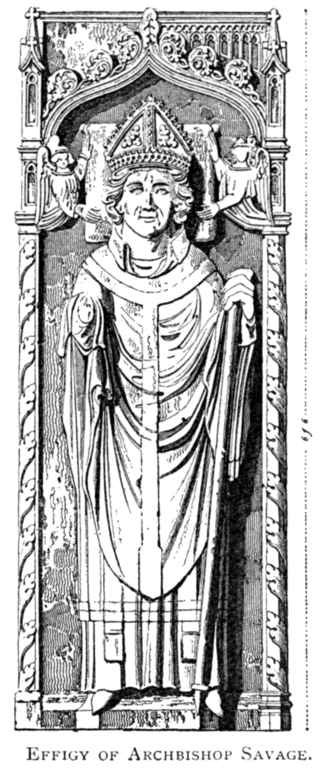
Thomas Savage was a prelate, diplomat and scholar during the Tudor period. Savage served as Chaplain to King Henry VII and was Archbishop of York from 1501 until his death in 1507. Prior to his consecration as a Bishop, Savage served as a diplomat and rector. As a diplomat Savage held the positions of English Ambassador to Castile and Portugal, during which time he helped broker the marriage treaty between Arthur, Prince of Wales and Catherine of Aragon in 1489, and later held the position of English Ambassador to France from 1490, where he took part in the conference at Boulogne.

Humphrey Humphreys was successively Bishop of Bangor (1689–1701) and Bishop of Hereford (1701–1712).

Philip Henry was an English Nonconformist clergyman and diarist. His son Matthew Henry was a notable commentator on the Bible and also a Presbyterian minister.
The Reverend Thomas Pyle was a Church of England clergyman and religious controversialist.

John Prideaux was an English academic and Bishop of Worcester.
William Moreton was an English prelate in the Church of Ireland who served as the Bishop of Meath from 1705-1716.

Richard Vaughan was a Welsh bishop of the Church of England. He was educated at Cambridge University and became Bishop of London.
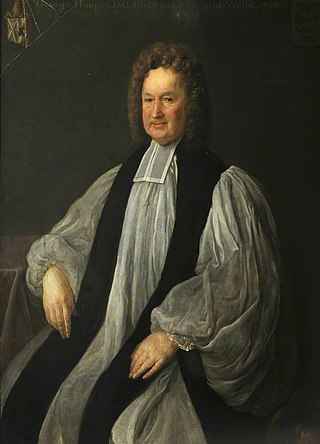
George Hooper was a learned and influential English High church cleric of the late seventeenth and early eighteenth centuries. He served as bishop of the Welsh diocese, St Asaph, and later for the diocese of Bath and Wells, as well as chaplain to members of the royal family.
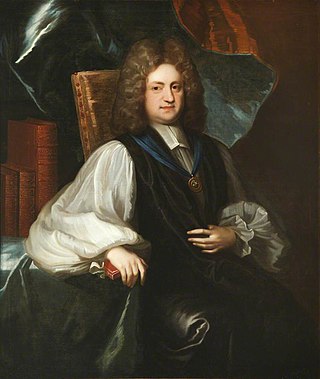
Charles Trimnell (1663–1723) was an English bishop. He was a Whig in politics, and known for his attacks on High Church views, writing on the subordination of the Church of England to the state. After the accession of George I of Great Britain in 1714 he was in the royal favour and influential.
John Jones was a Welsh Anglican priest and writer.
Thomas Pierce or Peirse (1622–1691) was an English churchman and controversialist, a high-handed President of Magdalen College, Oxford, and Dean of Salisbury.

Robert Morgan was a Welsh Bishop of Bangor.
Benedict Nichols, also spelt Nicholls, was a priest and bishop of the Roman Catholic Church, successively a parish priest in England, a canon of Salisbury Cathedral, and Bishop of Bangor and Bishop of St David's in Wales.
Henry Bridgeman was an Anglican clergyman who served in the Church of England as the Bishop of Sodor and Man from 1671 to 1682.
Dr. Patrick Sheridan was the Church of Ireland Bishop of Cloyne between 1679 and 1682.
Paul Richard Thomas SSC is a British Anglican bishop who has served as Bishop of Oswestry, a suffragan bishop in the Diocese of Lichfield and the provincial episcopal visitor for the western half of the Province of Canterbury since February 2023. From 2011, he was vicar of St James's Church, Paddington.
References
- 1 2 3 Jones, J. Gwynfor (2004). "Jones, Thomas (d. 1682)" . Oxford Dictionary of National Biography (online ed.). Oxford University Press. doi:10.1093/ref:odnb/15089 . Retrieved 5 March 2009.(Subscription or UK public library membership required.)